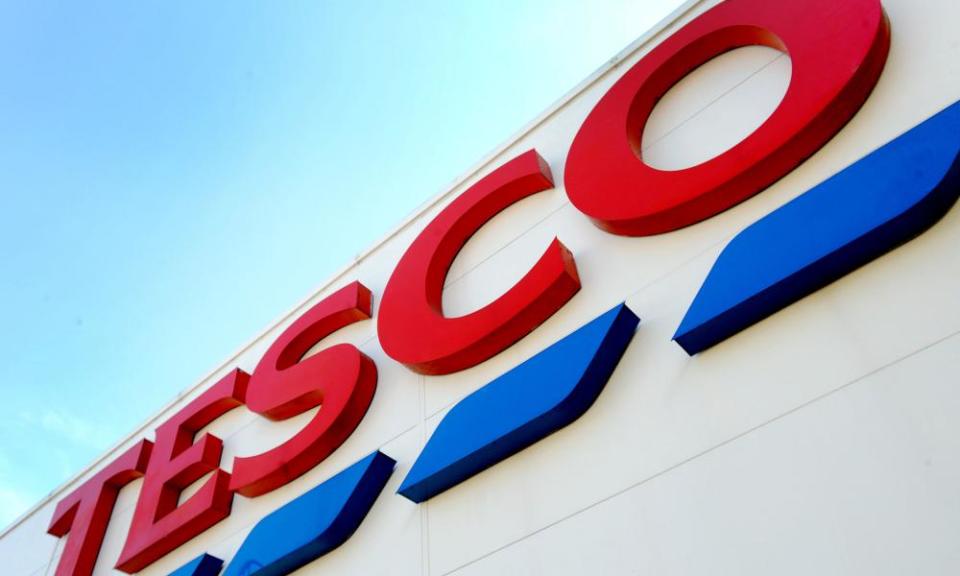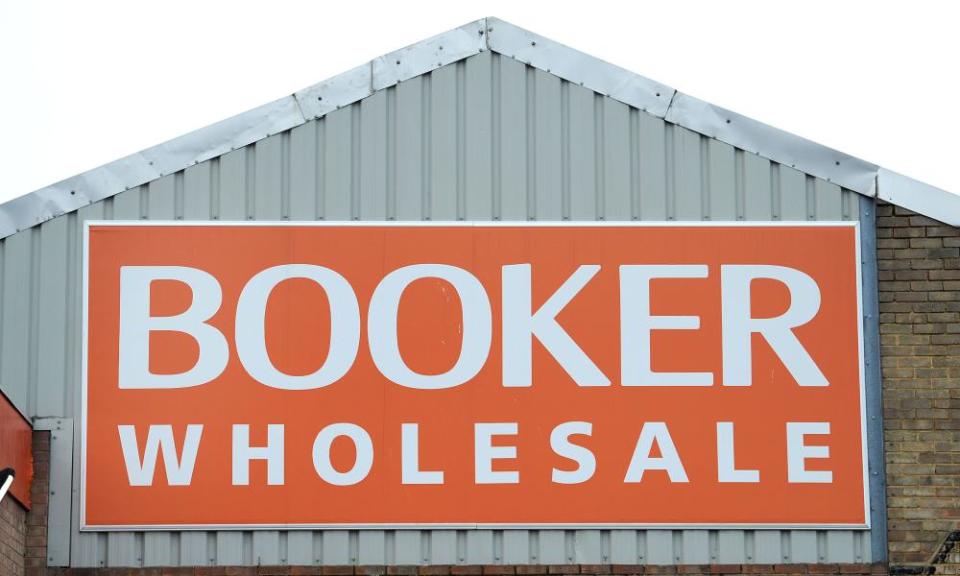Tesco's £3.7bn takeover of Booker given green light

Tesco’s £3.7bn takeover of cash-and-carry group Booker has been given the provisional go-ahead by the competition watchdog despite rivals warning the deal could drive them out of business.
After spending six months poring over evidence from competitors and crunching numbers, the Competition and Markets Authority (CMA) has concluded the merger of Tesco and Booker – the UK’s biggest retailer and grocery wholesaler respectively – is not bad news for shoppers and diners.
“Our investigation has found that existing competition is sufficiently strong in both the wholesale and retail grocery sectors to ensure that the merger between Tesco and Booker will not lead to higher prices or a reduced service for supermarket and convenience shoppers,” said Simon Polito, chair of the inquiry group.
Some analysts were stunned the watchdog appeared ready to wave through such a large and controversial deal without asking for concessions when in 2015 it agonised over Poundland’s £55m takeover of the 99p Stores chain. Last month a group of wholesalers, speaking for 60% of the market, jointly wrote to CMA stating the deal would hand Tesco “incontestable power over the procurement of all grocery categories in the UK”.
“The wholesale trade in particular will be wondering why on earth it ever bothered engaging at all with the CMA,” said Shore Capital analyst Clive Black. “If Tesco and Booker can merge with unconditional approval, then the scope for further large-scale consolidation cannot be ruled out.”
Tesco has 3,200 UK stores whereas Booker supplies 117,000 independent retailers, a headline figure that includes the 5,500 retail stores under its symbol group brands Premier, Londis, Budgens and Family Shopper. If the deal gets formal clearance next month it will create a retail and wholesale giant with a turnover approaching £60bn.

When the acquisition of Booker was announced in January, Tesco boss Dave Lewis said the combined group would be able to reduce its running costs by £200m a year but some think that figure could be as much as £500m and Black said suppliers would have mixed feelings about the deal. “Those synergies have to come from somewhere and suppliers will be at the heart of Dave Lewis and [Booker chief executive] Charles Wilson’s thinking.”
In the summer the CMA referred the deal for an in-depth investigation over concerns that the tie-up could result in higher prices for shoppers in about 350 areas across the UK. But after analysing the impact of the merger in every area where a Tesco and a Booker-supplied shop were both present – more than 12,000 shops – it decided that competition was strong enough to see off any attempt to profiteer.
“Millions of people use their local supermarket or convenience store to buy their groceries or essentials,” said Polito. “Strong competition in the market ensures that shoppers can choose the best deal for them.”
The CMA said Tesco and Booker do not compete head-to-head in most of their activities. It gave the example of the catering sector where Tesco is not a player but Booker has 441,000 customers, including major chains such as Byron and Wagamama, and rings up over 30% of its sales.
Tesco welcomed the latest development and said the deal was expected to complete in early 2018. “This merger has always been about growth, and will bring benefits for independent retailers, caterers, small businesses, suppliers, consumers, and colleagues,” said the retailer.
The deal has not been welcomed with open arms by all Tesco’s shareholders. In March, Schroders and Artisan Partners, two of its biggest shareholders, came out against the deal, urging Lewis to focus on turning around the existing chain. In recent years Tesco has been hit by growing competition from discount chains and an accounting scandal.
In a statement Shroders said it remained opposed to the Booker deal: “We believe that Tesco is paying a too high a price for Booker, making it very hard to create value for Tesco shareholders.”
Bernstein analyst Bruno Monteyne suggested Booker shareholders might also be unhappy after Tesco gave up gains made in the wake of the deal being announced in January. For each Booker share, they are being offered 0.861 Tesco shares and 42.6p in cash.
Tesco shares closed up by 6% at 187.9p, while Booker also added more than 6% to 211.3p as the update removed some of the uncertainty clouding the deal.
Monteyne said the combined might of Tesco and Booker would enable a “rapid market share grab” in the £85bn out-of-home food market. “This should be sufficient to make Tesco not only the biggest grocer in the UK but also one of the fastest growing food retailers in the UK for many years to come,” he said.

 Yahoo Finance
Yahoo Finance 